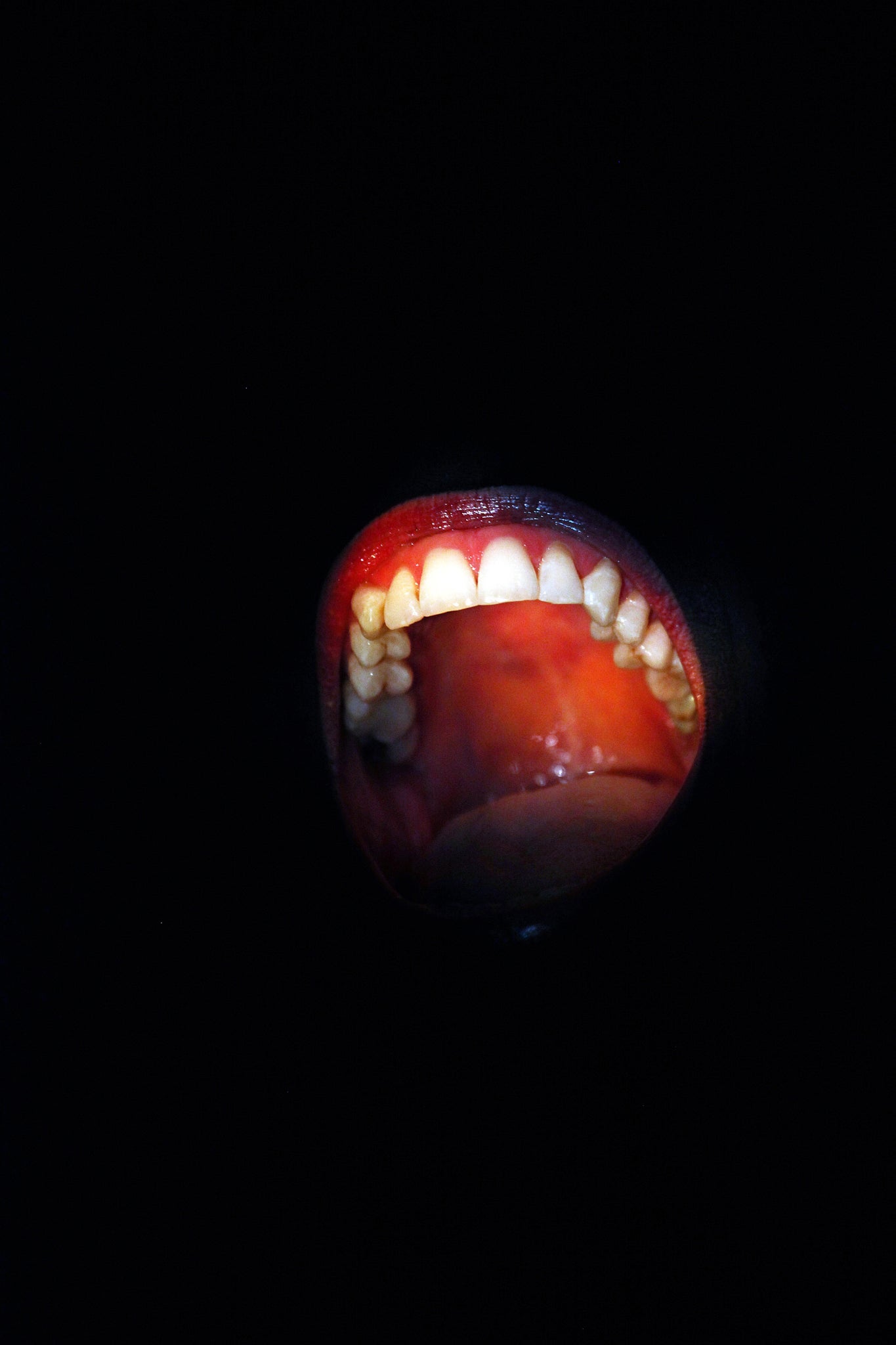Beckett trilogy: Not I/Footfalls/Rockaby, theatre review - 'An unforgettable show'
Royal Court, London

Lisa Dwan delivers a virtuosic performance of three of Beckett's short later works in an extraordinary hour-long experience that feels more like a group hallucination or a troubling collective dream than a theatrical event.
The pieces emerge from and lapse back into a rumbling absolute darkness so dense it's like fur and it's a tribute to the memerising power of Walter Asmus's production that there wasn't a single flicker from a mobile phone or a whispered exchange throughout the proceedings on press night.
The evening kicks off with Not I, the most familiar of the plays, first performed in this theatre forty years ago by Billie Whitelaw. Eight feet in the air, a disembodied female mouth materialises, spotlit in the pitch-black, and spews a fractured steam-of-consciousness monologue in a demented torrent. It's a stage picture that still astonishes – imagine the Cheshire Cat's grin as reinvented by Munch.
Beckett wanted the piece to “work on the nerves of its audience, not its intellect” and stipulated that it should be emitted at “the speed of thought”. Dwan's 9 minute performance is the quickest on record. The woman's plight is grotesquely tragicomic: having spent most of her isolated, loveless life mute, she now finds herself the victim of relentless verbal diarrhoea. Listening to Dwan's unbelievably breakneck, manic Irish-accented gabble is like watching a non-driver trapped at the wheel in a hurtling vehicle with no brakes. The actress, though, is in prodigious control of the material. The woman's recurring denial that she is the subject of her third-person narrative – “what?...who?...no!...she!” escalates, to just right degree here, in desperate, teeth-baring insistence.
The exquisite way that James Farncombe's lighting realises Beckett's wishes plays an enormous role in the evening's success and can be seen at its most subtle and poetic in the second piece Footfalls where Dwan appears as May, the middle-aged daughter who paces compulsively on the strip of landing outside the bedroom of her dying, heard-but-not-seen mother.
The agoraphobic, neurotic May has dwindled to “a tangle of tatters” and comes to acknowledge, though again via a third-person story, that she was “never there” to begin with. Dwan's drained, plaintive delivery and the spectral lighting which keeps tapering into an almost uncanny faintness conjure up a woman who seems to be doomed to haunt a world where she failed to exist.
The pacing is consummate in each of the pieces but perhaps especially so in the last, Rockaby, in which a prematurely aged daughter, in sequinned black, is mechanically rocked towards death by her mother's chair, while listening to a recorded monologue about the gradual closing down of her existence.
The intricate, eerily lulling repetitions of this speech (“saying to herself/whom else/time she stopped) and the fearful but defiant cries of “More”, with which she persists in activating this voice movingly, suggest a suicide that is a kind of auto-euthanasia. The Royal Court run is sold out, but tickets are still available for the short West End transfer of this unforgettable show.
To January 18; 0207 565 5000; then Duchess Theatre, London 3 – 15 February, then a regional tour in the autumn
Subscribe to Independent Premium to bookmark this article
Want to bookmark your favourite articles and stories to read or reference later? Start your Independent Premium subscription today.

Join our commenting forum
Join thought-provoking conversations, follow other Independent readers and see their replies